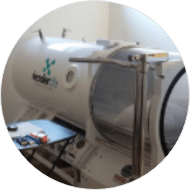Alternative T-Cell Lymphoma Treatments: Expert Care That Works
Survive T-Cell Lymphoma. At New Hope Unlimited, our administrative and medical teams are dedicated to providing the most comprehensive treatments that:
- Stimulates spontaneous tumor regression
- Rebuilds the immune system to fight cancer recurrence
- Advocates fewer side effects than mainstream medicine
- Improves quality of life
What Patients Say About Cancer Treatment at New Hope
What is T-Cell Lymphoma?
Understanding your disease and diagnosis is the first step toward cancer remission.
T-cell lymphoma can develop in the lymphoid tissues, such as the lymph nodes and spleen. It can also occur outside of lymphoid tissues, often affecting the liver, gastrointestinal tract, skin, liver, nasal cavity, and others. T-cell lymphomas account for approximately seven percent of all non-Hodgkin lymphomas in the United States. Each particular T-cell lymphoma subtype is rare, which can be indolent (slow-growing) or aggressive (fast-growing).
Types of T-Cell Lymphomas
Here at New Hope Unlimited, we offer a powerful combination of conventional and alternative treatments for cancers that begin in white blood cells. Specifically, our knowledge, training, and expertise in blood cancers help to address the different types of T-cell lymphoma.
Cutaneous T-cell lymphoma (CTCL) is one type of T-cell lymphoma, which primarily affects the skin. However, it can also involve the blood, lymph nodes, and organs.
The two main types of cutaneous T-cell lymphoma are:
- Mycosis Fungoides
Mycosis fungoides causes different lesions or sores that can be mistaken for other skin conditions, such as eczema, psoriasis, or dermatitis. - Sézary Syndrome
Sézary syndrome is a progressive form of mycosis fungoides. It affects the blood and can metastasize (spread) to the lymph nodes and organs.
Other T-cell lymphomas include:
- Angioimmunoblastic T-cell Lymphoma (AITL)
AITL is an uncommon and aggressive form of non-Hodgkin’s lymphoma. - Precursor T-Lymphoblastic Lymphoma
This lymphoma starts in the thymus gland and may invade the area between the lungs. - Anaplastic Large Cell Lymphoma (ALCL)
ALCL includes three subtypes, which can affect the lymph nodes, skin, and internal organs. - Peripheral T-Cell Lymphoma – Unspecified
This group of diseases does not fit into any of the other subtypes.
New Hope Unlimited also provides treatments and comprehensive care for rare types of T-cell lymphoma, including adult T-cell leukemia, enteropathy-associated intestinal T-cell lymphoma, extranodal natural killer T-cell lymphoma, and lymphoblastic lymphoma.
Addressing the Signs of T-Cell Lymphoma
Among our missions is to reduce or reverse the symptoms of T-cell lymphoma, which may vary depending on the specific subtype:
- Patches of flat, scaly skin
- Tumors that may develop into ulcers
- Skin itching or rash formation
- Thick, raised skin patches
- Enlarged lymph nodes
- Changes to nails and hair
- Edema or swelling
- Quick bruising or bleeding
- Fevers or chills with unknown causes
- Frequent infections
- Constant fatigue or weakness
- Persistent abdominal pain due to a swollen spleen
- Abdominal fullness
- Increased urge to urinate
- Changes in bowel habits, such as constipation
What Caused Your Cancer?
Currently, medical scientists do not know what causes T-cell lymphoma. However, the following risk factors may increase its chances of development:
- Increasing age
- Medications that suppress the immune system
- Exposure to certain chemicals
- Infection with HIV or Epstein-Barr virus (EBV)
Detection and Diagnosis of T-Cell Lymphoma
The key to boosting your T-cell lymphoma prognosis and life expectancy is to receive an early and accurate diagnosis. Your physician might order the following tests to screen for lymphoma:
- Medical and physical exam
- Blood tests
- Biopsies, including:
- Removing a sample skin tissue for testing
- Removing a sample lymph node for testing
- Removing a sample of bone marrow for testing
- Imaging tests, such as:
- Computerized tomography (CT) scan
- Magnetic resonance imaging (MRI) scan
- Positron emission tomography (PET) scan
After receiving a T-cell lymphoma diagnosis, the most important step is to plan your treatment.
Why Choose Us for T-Cell Lymphoma Alternative Treatment
Choosing your cancer care team may be the most important decision to make as a lymphoma patient. Here at New Hope Unlimited in New Mexico, you will receive comprehensive care from leading providers of a cross between mainstream and holistic treatments for T-cell lymphoma. We believe that combining both sides of medicine improves your chances for remission, fusing powerful technologies and science-proven techniques into survivorship.
It’s never too late. Call 480-666-1403 today.
Our Approach
 Advanced Treatments for T-Cell Lymphoma
Advanced Treatments for T-Cell Lymphoma Top-Rated Physicians
Top-Rated Physicians Personal Care
Personal Care Patient Satisfaction
Patient SatisfactionOur Patient-Centric Medical Facilities
At New Hope Unlimited, we pride ourselves in providing superior comfort, cleanliness, and cancer care at our 8,000 square foot medical treatment center in San Luis Rio Colorado, Mexico. We worked with renowned architects and contractors to create the ideal space for recovery, which includes state-of-the-art lounge areas and spacious private in-rooms that assure the comfort of our patients and their loved ones.
To make our patients feel right at home, we equip each private ward with high-definition U.S. television, quality bedding, and high-speed internet connection. And with proper nutrition playing a vital role in cancer recovery, New Hope Unlimited also fulfills the dietary needs of each patient using fresh, organic produce to prepare breakfasts, lunches, snacks, and dinners.
Comfort and cleanliness are also strictly implemented in our medical treatment rooms, which are equipped with the latest medical supplies and technology to provide the highest standard of care and treatment. Our medical center also has an in-house Hyperbaric Chamber, a well-established therapy for decompression sickness, exclusively available for our patients’ use.
Further, New Hope Unlimited has maintained its exceptional partnership with Hospital Migoo, a medical group composed of certified physicians and specialists committed to our patients’ care and well-being.
Stories of New Hope
Life-changing tales of our cancer patients and survivors.

FAQs
1. Is lymphoma contagious?
Some viruses, such as EBV, can cause lymphoma in some people. However, lymphoma itself is not an infectious disease. Like all cancers, you cannot catch lymphoma, nor can you pass it on to someone else.
2. What specific treatments does New Hope Unlimited offer?
From complete body detoxification, systemic enzyme therapy, and oxidative therapy read this page to know about the alternative T-cell lymphoma treatments you may receive.
WE’D LOVE TO HEAR FROM YOU! REQUEST FOR A CONSULTATION
STOP FEELING HELPLESS TO YOUR DISEASE... YOU STILL HAVE OPTIONS!
Schedule an appointment with New Hope


